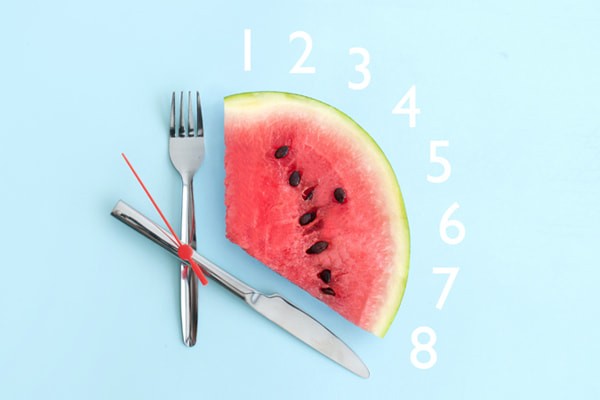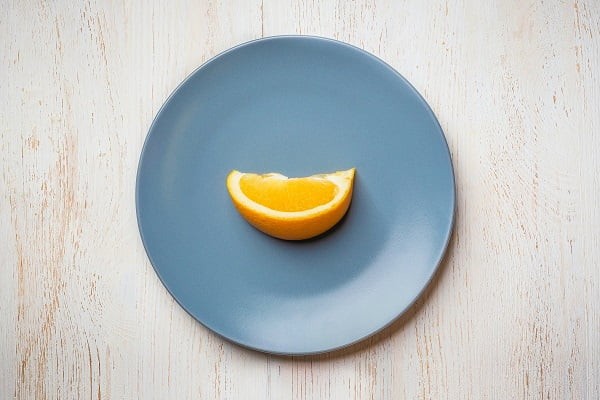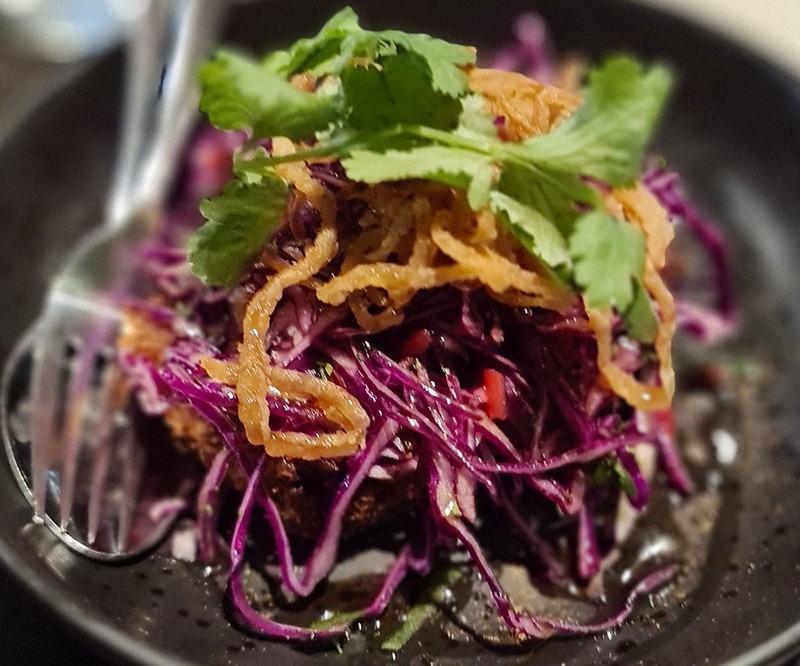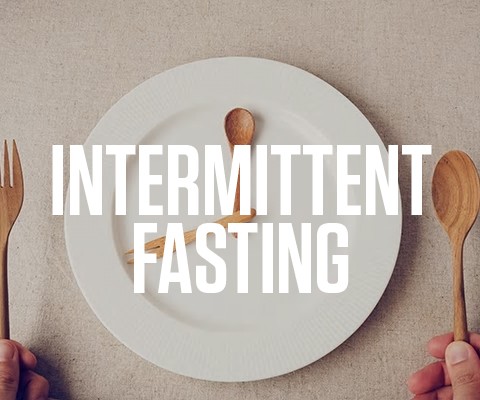Will Intermittent Fasting Help Me Lose More Weight?

Intermittent fasting for fat loss: Does it work?
Intermittent fasting involves extended periods of not eating, and periods of eating. Here are three of the most popular approaches:
- The 5:2 diet (eating for 5 days and fasting for 2).
- Eat stop eat (a 24 hour fast once or twice a week).
- 16:8 (Fasting 16 hours and eating 8 hours).
Intermittent fasting can "work" because weight loss simply depends on a calorie deficit. The average person is LESS likely to eat a calorie surplus if they're not eating for an extended period of the day. But you can still gain fat by fasting for 16 hours, if you enter a calorie surplus in the other 8 hours.
But the larger question is: does intermittent fasting provide any benefits in comparison to a traditional dieting approach?
Will Intermittent fasting make me lose more weight than another diet?
The current body of scientific evidence says, no.
One study compared the differences in fat loss between 1, 3, or 6 meals per day, and reported no significant differences.
Intermittent fasting caught many people's attention when it was claimed you could fast for 16 hours and eat whatever you wanted within an 8-hour feeding window and not lose fat. But that's not how the body works, eating in a calorie surplus creates fat storage.
Recently, the most comprehensive analysis of intermittent fasting was done. 40 studies were reviewed with 12 directly comparing intermittent fasting with a standard weight loss diet. The researchers reported "apparently equivalent outcomes” for both standard and intermittent fasting dietary approaches for fat loss. Also reported were no differences relating to thyroid, cortisol, or sex hormones. The scientists do point out however that more research is needed in regards to the latter.
What's critical to understand is that you cannot hack your bodies mechanisms around fat loss. The aforementioned science is clear that creating magical feeding windows doesn't mean you'll lose more fat.
- Calorie deficit = weight loss.
- Calorie surplus = weight gain.
Another intermittent fasting study in 2020 examined 116 obese and overweight subjects for 3 months. The authors concluded that intermittent fasting didn't help people lose weight any more than eating three times daily.

Intermittent fasting in weight lifters and bodybuilders -- is there a difference in fat loss?
There's always the gym junkie who turns their nose up at science because those studies "weren't done into weight lifters like me." Well, that isn't true!
Research in 2015 examined an intermittent fasting approach to standard dieting with the identical weight training program. Consistent with other findings, no differences in fat loss were reported.
Interestingly though, the studies author spoke about how people responded differently to the treatments. Some said the fasting made them eat healthier, whilst others said they wanted to gorge on everything in sight when the feeding window opened.
And this is when we steer away from the research and make the following point, which may be the most important advice for a weight loss diet:
The best weight loss diet is the one you can stick to for the longest period; providing it suits your lifestyle, and you're eating in a calorie deficit!
Fasting for weight loss: daily meal plan example
Let's take the example of Bulk Nutrients customer "Ryan" who wants to try intermittent fasting. Whilst Ryan's fat, protein, and carbohydrate intake set-up are beyond the scope of this article, his calories would need to be set at a 20% calorie deficit for fat loss. If Ryan's TDEE (total daily energy expenditure) was 2500 calories, his fat loss diet would need to be set to 2000 calories. It would then look like the below:
Protein = 197 grams (788 calories)
Fat = 68 grams (612 calories)
Carbohydrates = 150 grams (600 calories)
TOTAL = 2000 calories.

16:8 intermittent fasting approach example:
With a 16:8 intermittent fasting approach (one of the most popular in the fitness community), Ryan's diet might look like this:
- 7 am - Ryan awakes. (Fasting began at 11 pm when Ryan went to bed. This means Ryan has been fasting for 8 hours already).
- 3 pm -- Feeding window begins until 11 pm.
- 3-4 pm -- Ryan eats "breakfast" (the name comes from breaking the fast) at this time, with 30-50% of his daily macronutrients.
- 7 pm - Ryan visits the gym.
- 9 pm - Ryan consumes another 30-50% of his daily macronutrients.
- 10:30 pm -- Ryan can save 10-20% or (even more) of his daily macronutrients here before the fast begins again.
- 11 pm -- Fast begins again.
For as long as Ryan sticks to his daily macronutrient numbers, he can eat whatever percentile of them within the feeding window he pleases and lose fat.
It boils down to this: intermittent fasting is not a magic bullet when it comes to fat loss. It's no better than a standard three meal a day diet. It's simply another way to eat in a calorie deficit, giving yourself less chance of creeping into a calorie surplus by eating and snacking at all times of the day.
The only way to know if it's effective for you for as far as you can stick to it -- is to try it. Many people love the simplicity of it and find it breeds great discipline and helps them eat healthier.
Ultimately, your fat loss comes down to a diet you can stick to. The only thing that guarantees weight loss is a calorie deficit; and a CONSISTENT one!
References:
- Leaf A, Antonio J. The Effects of Overfeeding on Body Composition: The Role of Macronutrient Composition - A Narrative Review. Int J Exerc Sci. 2017;10(8):1275-1296. Published 2017 Dec 1.
- Lowe DA, Wu N, Rohdin-Bibby L, et al. Effects of Time-Restricted Eating on Weight Loss and Other Metabolic Parameters in Women and Men With Overweight and Obesity: The TREAT Randomized Clinical Trial. JAMA Intern Med. 2020;180(11):1491–1499. doi:10.1001/jamainternmed.2020.4153
- Seimon RV, Roekenes JA, Zibellini J, Zhu B, Gibson AA, Hills AP, Wood RE, King NA, Byrne NM, Sainsbury A. Do intermittent diets provide physiological benefits over continuous diets for weight loss? A systematic review of clinical trials. Mol Cell Endocrinol. 2015 Dec 15;418 Pt 2:153-72. doi: 10.1016/j.mce.2015.09.014. Epub 2015 Sep 16. PMID: 26384657.
- Strasser B, Spreitzer A, Haber P. Fat loss depends on energy deficit only, independently of the method for weight loss. Ann Nutr Metab. 2007;51(5):428-32. doi: 10.1159/000111162. Epub 2007 Nov 20. PMID: 18025815.
- Tinsley GM, et al. Intermittent fasting combined with resistance training: effects on body composition, muscular performance, and dietary intake (poster presentation). J Int Soc Sports Nutr. 2015; 12(Suppl 1): P38.
- Young CM, Scanlan SS, Topping CM, Simko V, Lutwak L. Frequency of feeding, weight reduction, and bodycomposition. J Am Diet Assoc. 1971;59:466–472. 981-8.
















































